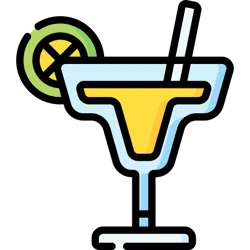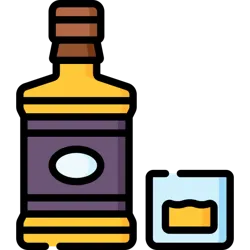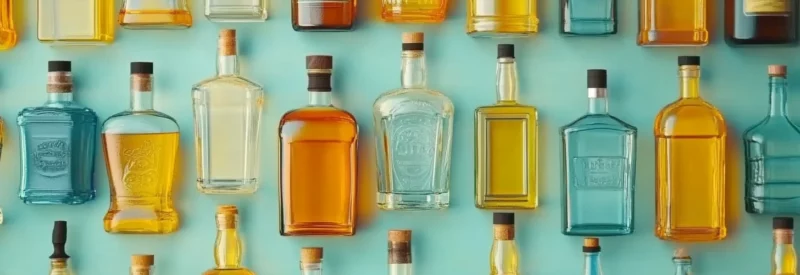Obtaining a liquor license in California, though certainly achievable, is far from a single-step process. One must understand the types of licenses available to merchants in the liquor space, specific business needs, and what it means to comply with state and local regulations. Even for seasoned pros, it’s a lot to keep track of.
In this guide to securing your California liquor license, we’ll walk you through critical details, such as the bare minimum requirements for obtaining and securing a license. We’ll also talk about details related to cost, the application process, and much more. Whether you’re a winery, brewery, bar, or restaurant, this guide will provide invaluable knowledge that will help you navigate the complexities of this process.
Types of California Liquor Licenses
Different licenses are issued to meet the needs of different establishments that distribute and sell alcoholic beverages. Proceeding through the steps with caution and scrutiny should be a top priority for any bar owner or restauranteur.
These licenses are organized into categories, which have been determined based on factors related to consumption, overhead cost, venue type, and kinds of alcohol permitted at said venue, among other factors. Below, we will explore some common types of California liquor licenses[1]California Department of Alcoholic Beverage Control. “Application Fee Schedules“. Accessed on September 4th, 2024.:
- Type 01—Beer Manufacturer: Authorizes breweries to produce over 60,000 barrels of beer annually. Required for beer production within the state.
- Type 02—Winegrower: Allows the production and selling of wine by wineries.
- Type 07—Rectifier: Permits blending, coloring, cutting, flavoring, mixing, and rectifying of distilled spirits and wine. Also allows exporting, labeling, packaging, and selling to specific license holders.
- Type 17—Beer and Wine Wholesaler: Permits incidental sales to supplier-type licensees.
- Type 20—Off-Sale Beer & Wine: Permits liquor merchants to sell wine and beer for recreational consumption off-site.
- Type 21—Off-Sale General: Permits liquor merchants to sell wine, beer, and distilled spirits for recreational consumption off-site.
- Type 37—Daily General: Temporary daily license for On-Sale General for the purposes of fundraising events. Permits on-site consumption to the general public while prohibiting any off-site consumption.
- Type 41—On-Sale Beer & Wine—Eating Place: Allows liquor merchants to sell wine or beer for recreational consumption either on or off-site. Distilled spirits are not allowed on-premises under Type 41.
- Type 47—On-Sale General – Eating Place: Permits the selling of wine, beer, and distilled spirits for recreational consumption both on and off-premises.
- Type 58—Caterer’s Permit: Permits certain licensees to cater alcoholic beverages off-site.
- Type 77—Event Permit: Authorizes specific licensees to sell wine, beer, and distilled spirits for recreational consumption on adjacent property.

What type of liquor license do I need?

Determining the exact type of liquor license your business will require depends on several factors. Location, cost, and the parameters of your establishment all play a part. For instance, if you operate a neighborhood bar that accepts various payment options in exchange for alcoholic beverages (credit cards being a popular one), you must apply for the correct type of liquor license.
In some cases, the type of license you need will correlate to the exact nature of your business; in other cases, specific activities you plan to participate in. For example, if you operate a bar or restaurant where patrons can consume alcoholic beverages on-site, you may need an “On-Sale General” license. Said license allows for the legal sale of beer, wine, and distilled spirits while on-premises. Alternatively, if your establishment plans to serve beer and wine exclusively, you will need an “On-Sale Beer & Wine” license.
A “Beer Manufacturer” license is typically a requirement for those entering the brewing industry. Similarly, for those engaged in the manufacturing and sale of wine, i.e., a winery, a “Winegrower” license will do. True to their name, distilleries generally require a “Distilled Spirits Manufacturer” license.
Retail businesses that sell packaged alcoholic beverages for consumption off-site, such as liquor or convenience stores, may require an “Off-Sale” license. On the other hand, if your business involves catering alcoholic beverages off-site, you may find a “Caterer’s Permit” or an “Event Permit” better suited to your needs.
Liquor License Requirements for California
In addition to the state mandates, licensees must possess a seller’s permit from the State Board of Equalization. There are also assorted tax obligations for alcoholic beverages, with non-retail licensees required to register with the Board of Equalization. This process involves interaction with BOE representatives, who assist with eReg questions during regular business hours.
Applicants should contact their local office of the United States Treasury Department, Alcohol and Tobacco Tax and Trade Bureau, before officially starting their business. Consider local regulations since city or county officials ultimately determine the need for a business license.
Furthermore, pay attention to escrow requirements. The escrow must be established, with the total purchase price or consideration set in place prior to the transfer’s filing with the department. Particular sections of the Alcoholic Beverage Control Act outline the escrow process in further detail. We encourage liquor merchants or those who maintain a merchant account for liquor business-based purposes to get familiar with these details, as misrepresentation, intentional or otherwise, may lead to denial or revocation of their license.
Applicants must present a Notice of Intention to Transfer to the County recorder at the time of filing, at least for transferring specific licenses. Exceptions for escrow and notices apply in specific, sometimes case-by-case situations. An example would be when an administrator, executor, or otherwise designated individual facilitates a license transfer.

Other necessary permits
In California, businesses must secure permits and official approvals to operate legally. Some of these permits and approvals include Fire Department Permits for fire safety adherence, Health Department Permits for food safety, Local Business Licenses, and Zoning Permits for compliance with local regulations. For remodeling or construction, you’ll need a building permit; for local sign rules, a signage permit. In terms of live entertainment, you’ll need Music and Entertainment Permits and a Sidewalk Café Permit for any events with outdoor seating. Liquor license applicants may or may not have to present an Environmental Permit for certain activities. Health and safety inspections are routine requirements at many businesses.
Understanding Liquor Laws in California
Since the legal drinking age in the state is 21, an individual who happens to be younger than 21 may only consume beer, wine, or alcoholic spirits in a private setting if a parent or guardian is present. Minors operating a motor vehicle with a blood alcohol content of .01% or higher is illegal (it is worth noting that DUI penalties are often harsher for underage offenders than for drinkers over the age of 21). The sale or purchase of alcohol between 2 a.m. and 6 a.m. is prohibited and punishable as a misdemeanor. This penalty may include a maximum fine of $1,000 and/or six months in county jail. Similarly, bars must stop selling alcohol after 2 a.m. Patrons must then take leave of the premises by 3 a.m. or at whatever time is decreed by the city.
The ABC can impose further operating hour restrictions in specific situations. Examples include failure to address objectionable conditions after notice, findings justifying suspension or revocation, license application denials, or objectionable conditions after notice.
How Much Does a Liquor License Cost in California?
Below, we will break down exactly how much it costs to get a liquor license in the Golden State[2]Postron. “4 Steps for getting a liquor license in California“. Accessed on September 4th, 2024.:
General Licenses:
- Converting Seasonal General License (Type 49) to a year-round license (Type 47): $18,635.
- General—Non-Priority (Types 51, 52, 53, 54, 55, 56, 76, 80): $1,065.
- General—Priority (Types 21, 47, 48, 57, 71, 72, 75, 83, 87, 88, 90, 99): $18,635.
- Type 47—On-Sale General Eating Place on Public Property: $7,060.
- Type 62—On-Sale General Dockside: $2,355.
- Type 64—Special On-Sale General Theater: $1,175.
- Type 70—On-Sale General Restrictive Service: $7,060.
- Type 78—Wine, Food, and Art Museum: $14,125.
- Type 90—On-Sale General Music Venue: $18,635.
Non-General Licenses:
- Non-General (Except Types 06, 26, 28, 82): $1,065.
- Non-General (Types 06, 26, 28, 82): $120.
- Non-General (Duplicate Type 02): $520.
Miscellaneous Operating Fees:
- Bad Check Fee: $25.
- Beer Keg Identification Tags (100): $30.
- Condition Modification: $560.
- Fingerprinting Fees: $63.
- Interim Operating Permit: $170.
- License Replacement Fee: $25.
- Qualified Manager: $165.
- Private Warehouse Permit: $200.
- Temporary Permit: $100.
Non-Profit Temporary Licenses:
- Daily Beer and Wine: $50.
- Daily General: $75.
- Special Daily Auction: $100.
- Special Daily Off-Sale: $100.
- Special Daily On-Sale: $100.
Catering and Event Permits:
- 0 to 999 in Attendance: $100.
- 1,000 to 4,999 in Attendance: $325.
- 5,000 or more in Attendance: $1,000.
- Invitation Only Events pursuant to 25600.5: $220.
How to Apply for a Liquor License in California
Below is a step-by-step guide on how to acquire a California liquor license.
- Determine License Type Required.
- Identify Applicable License Requirements.
- Determine the Overall Cost of the Application.
- Complete and Submit Application:
The application process encompasses five core stages: initial filing, notifications, investigation, final review, and license issuance. Applicants must post the Public Notice of Application at their location site for up to 30 days. Note that applicants may be asked to provide additional information during that time. Further steps include mailing information to nearby residents to keep them abreast of any updates, obtaining proof of zoning compliance, and publishing notices to keep all interested parties up-to-date on your progress. Applications must be completed in full, whether the applicant is renewing their license or applying for the first time. - Common Challenges and Expected Duration:
Some challenges you may face in this process include fee and document-related errors, liens on escrow, or your premises being under-prepared for opening. Your application can be declined for several reasons. Some of these reasons may or may not include age issues, concerns around crime, fraud, a record that renders the applicant unqualified, or zoning issues. Approval of a liquor license can take anywhere from forty to fifty-five days. Contested applications may extend this period to one hundred and seventy-five days. Note that initiating the process anywhere from four to six months before the expected opening can create delays and other uncertainties. - Final Review and License Issuance:
Headquarters conducts a final review upon receiving your application. Variables such as fees, encumbrances on escrow, or missing documents may or may not cause delays. Once the applicant has completed the final review and satisfied all obligations, they will be issued their California liquor license.
How to Renew Your California Liquor License
The licensee is responsible for initiating the process of renewing a liquor license in California. This notion remains true regardless of whether or not ABC receives a renewal notice. The merchant must submit renewal or application fees before the license expiration date. In that case, the fee amount would be contingent on the license type. Applicants can complete this process online. There is an additional sixty-day grace period for renewal if the license has already expired. The licensee is required to pay a 50% penalty and the standard renewal fee during this time.
Failure to renew one’s license within the abovementioned period may result in cancellation, which can lead to losing all related privileges. However, the licensee in question is entitled to an extra thirty days following cancellation to reactivate the license. The licensee can pay a renewal fee and associated 100% penalty. The license will be revoked unless they pay these fees within the thirty-day reactivation period.
Getting a Beer and Wine License in California: Closing Thoughts

Obtaining a liquor license in California is a nuanced process. Individuals interested in procuring a license should follow all the steps outlined. Compliance with federal, local, and state regulations will protect them from penalties, license denial, or other punitive measures.
This process can be costly, with additional operating charges that can translate to financial roadblocks. In other words, it is a meticulous, detail-intensive process that involves addressing potential challenges before they arise, determining the correct license type, and meeting any and all requirements.
What can liquor merchants do to ensure this process is smooth and stress-free? Stay educated. Engage with relevant authorities on the subject. Make sure your merchant account is fully operational. Stay up-to-date on industry changes and proactively monitor and manage every step of the renewal process.
This journey can be intricate and challenging, necessitating strict adherence to legal mandates. Your business may want to partner with a skilled bar and restaurant payment processing provider with a proven track record of assisting merchants in your industry. Follow the steps we’ve discussed, and you’ll be one step closer to contributing responsibly to California’s thriving beverage industry.
FAQs
How long does it take to get a liquor license in California?
The answer to this question varies based on several factors. However, the average timeframe for the approval of one’s liquor license application can span anywhere from forty to a hundred and seventy-five days[3]Korona POS. “How Much Does a Liquor License Cost in California?“. Accessed on September 4th, 2024.. The duration can depend on everything from the type of license to whether or not the applicant faces any form of pushback.
Do you need a liquor license to sell beer or wine in California?
Anyone who plans to sell beer, wine, or spirits in California will eventually need to secure a liquor license. There are different license types for various purposes, including on-sale and off-sale for consumption on or off-premises.
Is it hard to get a liquor license in California?
While getting a liquor license in California is manageable, it nevertheless requires some preparation. The degree of difficulty often correlates to several external factors, such as the location of the establishment and any additional regulations. Applicants must undertake the application process of their own volition and tackle challenges in ways that do not threaten the status of their application.
How long does a California liquor license last?
California liquor licenses typically last for one year. Licensees must renew their licenses annually to continue selling alcoholic beverages within the state.
How do I get a temporary or one-day liquor license in California?
Those wishing to obtain a one-day liquor license in California should adhere to the following steps. First, secure the necessary forms, including the Daily License Application and Supplemental Diagram. Fees for this are typically anywhere from $50 to $100. Applicants can pay either via cashier’s check or money order. Following this, complete the Daily License Authorization, including property owner approval. Finally, submit all forms to your local ABC District Office within ten to thirty days before the event.




